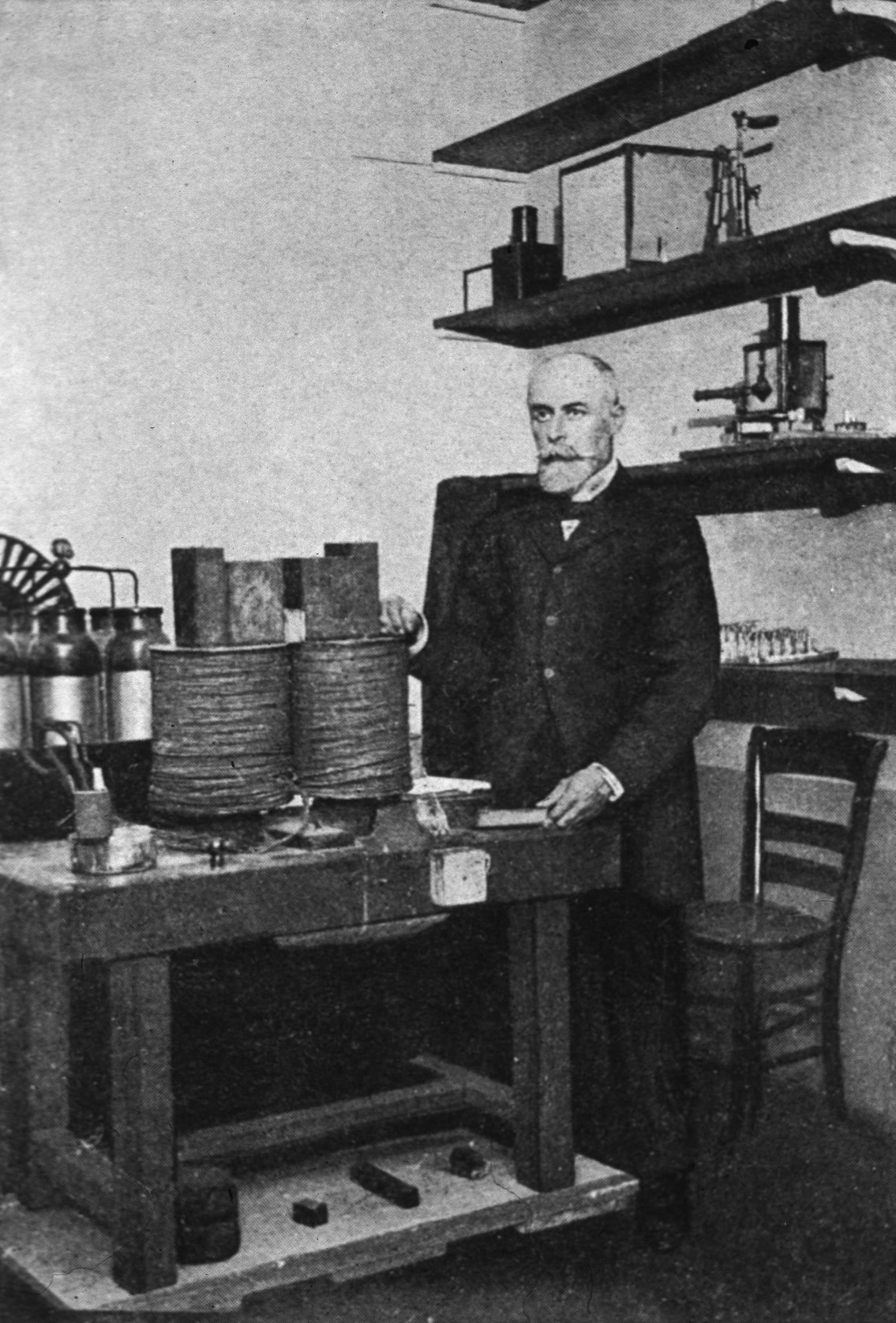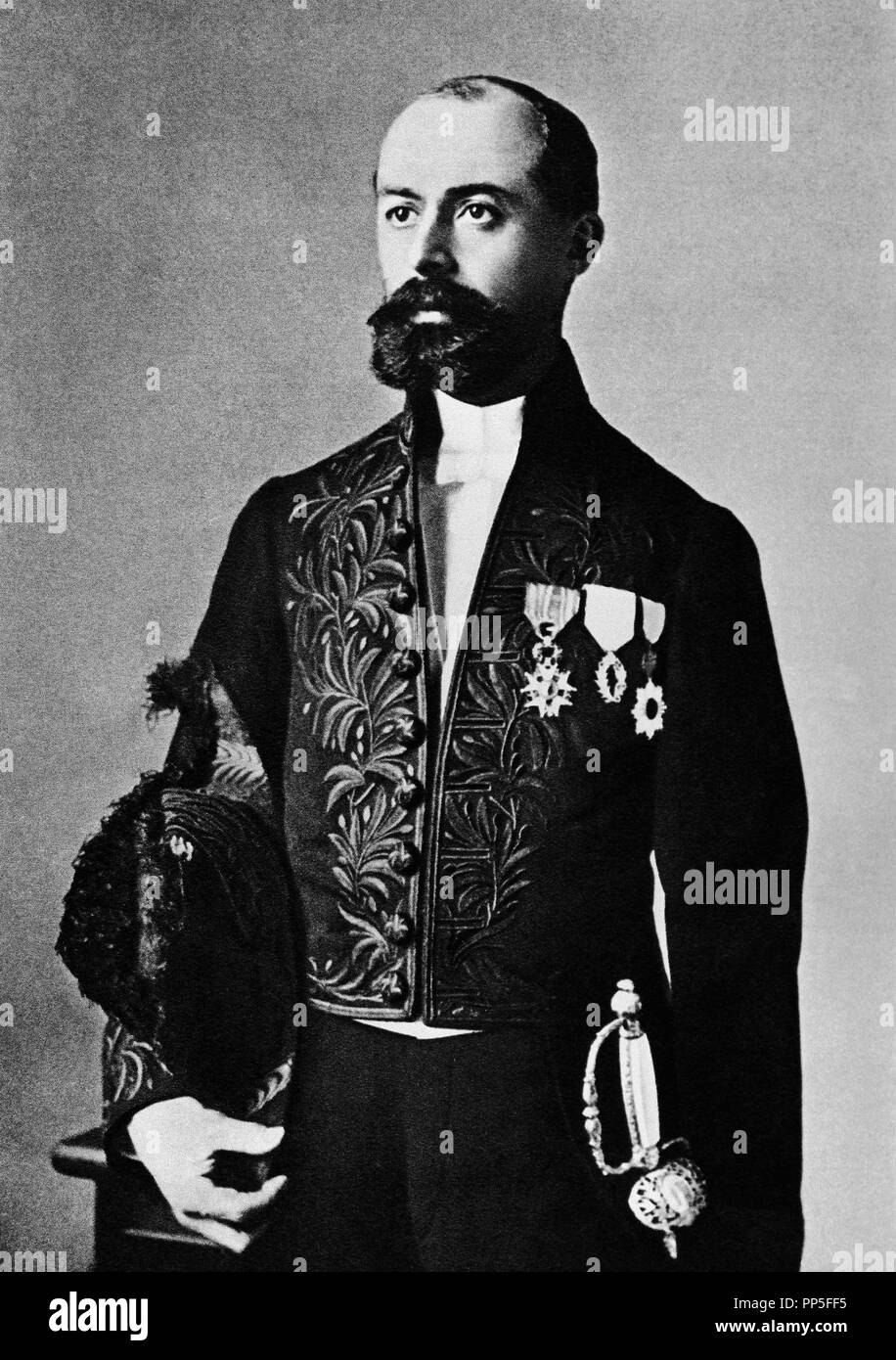
Henri Becquerel Alchetron, The Free Social Encyclopedia
Antoine Henri Becquerel (1852-1908) was a French scientist renowned for his work and subsequent discovery of radioactivity for which he was awarded the Nobel Prize for physics in 1903. Early life Antoine Henri Becquerel was born on 15 December 1852 in Paris, France to a family of nobility and active scientific history.

Antoine Henri Becquerel (18521908) Poster by Granger
Antoine Henri Becquerel [1] (Fig. 1) was born in Paris on December 15, 1852, in the Becquerel family, which was a family of renowned scientists. Starting with his grandfa-ther, members of three generations of the Becquerel family were physicists, and they had an extraordinary interest in

History of radioactivity презентация онлайн
Antoine Henri Becquerel (born December 15, 1852 in Paris, France), known as Henri Becquerel, was a French physicist who discovered radioactivity, a process in which an atomic nucleus emits particles because it is unstable. He won the 1903 Nobel Prize in Physics with Pierre and Marie Curie, the latter of whom was Becquerel's graduate student.

Eon Images Henri Becquerel
Antoine Henri Becquerel ( / ˌbɛkəˈrɛl /; [3] French pronunciation: [ɑ̃twan ɑ̃ʁi bɛkʁɛl]; 15 December 1852 - 25 August 1908) was a French engineer, physicist, Nobel laureate, and the first person to discover radioactivity. For work in this field he, along with Marie Skłodowska-Curie and Pierre Curie, [4] received the 1903 Nobel Prize in Physics.

Henri Becquerel French Physicist & Radioactivity Pioneer Britannica
Antoine Henri Becquerel was born in Paris on December 15, 1852, a member of a distinguished family of scholars and scientists. His father, Alexander Edmond Becquerel, was a professor of applied physics at École Polytechnique in Paris and had researched solar radiation and phosphorescence. Antoine entered the École Polytechnique in 1872 and.

Henri Becquerel YouTube
Antoine Henri Becquerel The Nobel Prize in Physics 1903 Born: 15 December 1852, Paris, France Died: 25 August 1908, France Affiliation at the time of the award: École Polytechnique, Paris, France Prize motivation: "in recognition of the extraordinary services he has rendered by his discovery of spontaneous radioactivity" Prize share: 1/2 Work

Henri Becquerel Atomic Theory Video & Lesson Transcript
The Nobel Prize in Physics 1903 was divided, one half awarded to Antoine Henri Becquerel "in recognition of the extraordinary services he has rendered by his discovery of spontaneous radioactivity", the other half jointly to Pierre Curie and Marie Curie, née Sklodowska "in recognition of the extraordinary services they have rendered by their joi.

GENIOS REVOLUCIONARIOS Henri Becquerel y la radioactividad
Antoine Henri Becquerel was born on December 15, 1852 into a family of scientists. He received his formal scientific training at the Ecole Polytechnique, graduating in 1874. His initial teaching appointment was in Physics at Ecole Polytechnique. In 1895 he succeeded his father as Chairman of Physics 1 at the school.

Portrait of French physicist A. Henri Becquerel Stock Image H402
Henri Becquerel (born December 15, 1852, Paris, France—died August 25, 1908, Le Croisic) French physicist who discovered radioactivity through his investigations of uranium and other substances. In 1903 he shared the Nobel Prize for Physics with Pierre and Marie Curie.

Ep. 373 Becquerel Experiment (Radiation) Astronomy Cast
Antoine Henri Becquerel [ 1] (Fig. 1) was born in Paris on December 15, 1852, in the Becquerel family, which was a family of renowned scientists. Starting with his grandfather, members of three generations of the Becquerel family were physicists, and they had an extraordinary interest in phosphorescence and fluorescence. Fig. 1

henri becquerel ZVAB
Antoine Henri Becquerel (1852-1908) was a French physicist and winner of the 1903 Nobel Prize in Physics. Becquerel was born in Paris, France on December 15, 1852. He was the son of a professor of applied physics, Alexander Becquerel. He began his studies in 1872 at École Polytechnique just south of Paris.

Henri Becquerel Vorarlberger Nachrichten VN.at
Antoine Henri Becquerel (December 15, 1852 - August 25, 1908) was a French physicist, Nobel laureate, and one of the discoverers of radioactivity. He inherited a tradition of research from his grandfather, Antoine Cesar Becquerel, who developed the field of electrolysis, and his father, A.E. Becquerel, who invented a new method for.

Henri Becquerel Biography Childhood, Life Achievements & Timeline
Antoíne Henri Becquerel (1852-1908), Fig. 1, was a third generation physicist in a family of well-known, respected 19th century physicists [3], [4], [5].The long family tradition in science started with Henri's grandfather Antoíne-César Becquerel (1788-1878), who after a short career in the Napoleon army, had a successful career as a researcher in physics and chemistry until his death.

circa 1900, Antoine Henri Becquerel, 18671934, who was joint winner
Antoine Henri Becquerel (December 15, 1852 to August 25, 1908) Henri Becquerel was a French engineer and physicist who discovered radioactivity in 1896, for which he shared the 1903 Nobel Prize in Physics. Henri Becquerel came from a scientifically talented family.

ANTOINE HENRI BECQUEREL Fizik Akademisi
Becquerel, Antoine-Henri (1852-1908) French physicist. Antoine-Henri Becquerel's landmark research on x rays and his discovery of radiation laid the foundation for many scientific advances of the early twentieth century.X rays were discovered in 1895 by the German physicist Wilhelm Conrad R ö ntgen, and in one of the most serendipitous events in science history, Becquerel discovered that the.

Henri becquerel hires stock photography and images Alamy
Henri Becquerel. February 26, 1896, was an overcast day in Paris — and that presented a problem for French physicist Antoine Henri Becquerel. Becquerel was hoping to demonstrate a link between minerals that glow when exposed to strong light and a new type of electromagnetic radiation called X-rays. The weather thwarted this experiment — but.